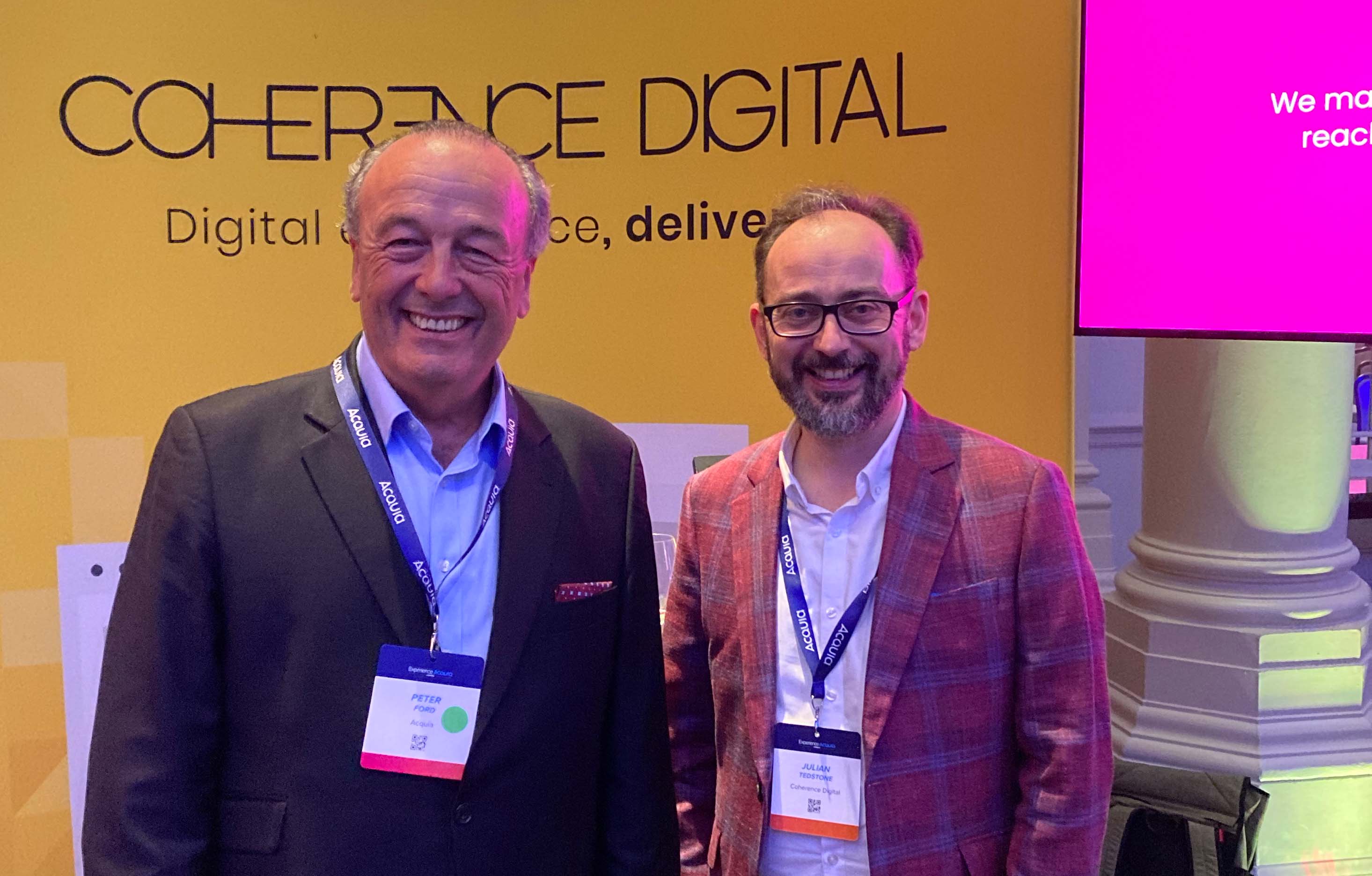The great and the good of London's digital community gathered at the swish Langham Hotel on Thursday to celebrate what we do best: bringing digital experiences to life. The first face to face event in......a long time! And what a great night it was too.
As every party should, it started with a panel of digital experts (and me), exploring the future of digital experiences, hosted by the ageless Tom Bianchi of Acquia and his special ball. The audience, starved of event action since lockdown, were spouting questions like voracious beasts. Not really, they were all very nice. And for those you poor fellows who couldn't make it, or have forgotten what I said, here's my take on digital experiences.

After all, in our ever-changing world, the consumer expectations for what constitutes a digital experience has changed. Since the beginning of the pandemic:
- 74% of consumers report their digital experience with brands has changed
- 84% of consumers have used digital channels more in 2020
- 48% of organisations have created more content for customer engagement
1. So what makes a great digital experience in your opinion?
For me there needs to be seamless and real-time communication between human beings, that yes leverages automation, machine learning and AI, but critically allows human beings to rapidly disseminate information that is potentially life saving. We’ve seen businesses need to pivot at very short notice - we’ve seen their entire CRM become irrelevant overnight in some cases as their customer base went through huge disruption.
I think we also see risks that when our tech gets too smart, users start to wonder whether they’re dealing with people or machines - and unless that boundary is an open and honest conversation, trust is eroded.
So, for me it’s about putting the human back in Human Computer Interaction. We do that through low-code - that lets non-technical editors construct and publish content rapidly, and then rip it up and throw it away if necessary based on their audience needs without developer intervention. This means taking away technical barriers like brand consistency, accessibility, device responsiveness and just concentrating on what a communicator needs to say to a user.
2. What do consumers expect from Digital Experiences in a post pandemic world?
I think it’s what they’ve always wanted - the utility of the web in their lives - relevant, up-to-date and clear information, the ability to fulfil service needs remotely, the ability to self serve right up to the point where they need a human being to help them, and then to have a knowledgeable, informed, effective human help them when they need it. Ultimately that’s what DXP - it's a blended service of humans and technology aimed at helping other humans.
3. What do you think they will expect (from DX) in 2030?
So Radio 4 for me is more of a kind of tinnitus than a radio station. I was listening to a gentleman called Dr David Engelman, a Neuroscientist from Stanford this week on the Life Scientific
He sees the brain as an electrically driven set of impulses generated by ‘bolt-on’ qualia (a posh word for senses) such as eyes, ears, touch, electrical and magnetic field sensitivity in birds and sharks and so on. So for him, reality does not exist. It’s just our brains sorting input and trying to build meaning around it. So he’s currently teaching deaf people to ‘hear’ through skin vibration - something that Beethoven did by holding a conducting stick in his mouth and holding it to an instrument. For Dr Engelmean this is adding senses - or new qualia.
He has this wonderful phrase which is ‘ Reality is built in the dark in a foreign language using signals’. As digital practitioners, we will increasingly see the consumers desire to have the interface become less and less intrusive - until it's seamlessly experienced rather than consumed via a screen.
4. How will technology change to support this (e.g. voice enabled digital experience)
With the disappearance (or at least the camouflaging) of the interface, the digital experience is going to become more and more personal. It’s going to become part of us in a way that currently we are only just beginning to understand with smart phones - which have been with us for almost 20 years now.
So I suspect we will need a conversation around trust, ownership of data, ownership of our experiences. So I for one am happy to see the CRM - the sales tool - replaced with the CDP - which puts the user first and provides governance over their data.
Sometimes I worry we’ve gotten too smart for our own good. So we need to make sure the DXP technologies we use are in the service of the right values.
OK, so there were other questions too, but I can't remember them all.
Thanks Acquia for a great night and let's do it again soon.








